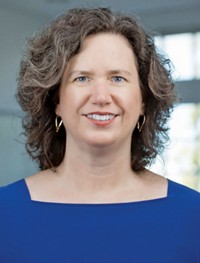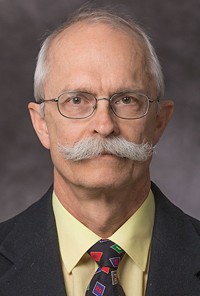Advertisement
Grab your lab coat. Let's get started
Welcome!
Welcome!
Create an account below to get 6 C&EN articles per month, receive newsletters and more - all free.
It seems this is your first time logging in online. Please enter the following information to continue.
As an ACS member you automatically get access to this site. All we need is few more details to create your reading experience.
Not you? Sign in with a different account.
Not you? Sign in with a different account.
ERROR 1
ERROR 1
ERROR 2
ERROR 2
ERROR 2
ERROR 2
ERROR 2
Password and Confirm password must match.
If you have an ACS member number, please enter it here so we can link this account to your membership. (optional)
ERROR 2
ACS values your privacy. By submitting your information, you are gaining access to C&EN and subscribing to our weekly newsletter. We use the information you provide to make your reading experience better, and we will never sell your data to third party members.
Elections
For director-at-large: Will E. Lynch
by Will E. Lynch, candidate for director-at-large
September 9, 2022
| A version of this story appeared in
Volume 100, Issue 32

Coastal Georgia Section. Georgia Southern University, Savannah, Georgia.
Academic record: Kalamazoo College, BA, 1986; Wayne State University, PhD, 1991.
Honors: ACS Service Award, Coastal Georgia Section, 1999; Armstrong Atlantic State University Alumni Award for Service to the Discipline, 2004; Sigma Xi.
Professional positions (for the past 10 years): Georgia Southern University, department chair and professor, 2018–22, interim dean of the College of Science and Mathematics 2022-; Armstrong State University, professor, 2005–18, department head, 2006–18.
Service in ACS national offices: Council Policy Committee, voting member, 2019–22, non-voting member, 2005–07; Committee on Strategic Planning, member, 2019–; Committee on Strategic Planning, Goal 1 Subcommittee, chair, 2022; Committee on Strategic Planning, Roadmap Implementation Subcommittee, chair, 2020–21; Committee on Divisional Activities, 2017–18; Committee on Meetings and Expositions, member, 2011–16, chair, 2013–15; Committee on Committees, 2008–10; Committee on Local Section Activities, 2002–07, chair, 2005–07, committee associate, 2000–01; Committee on Planning, 2005–07.
Service in ACS offices: Coastal Georgia Section: councilor, 1999–; chair, 2009, 1997; chair-elect, 1996; editor of Noble Gas, 2006, 1997–2000; executive committee member, 1996–; Southeastern Regional Meetings (SERMACS): SERMACS 2022, XRD in the Southeast—Advances in X-ray Crystallography in Research symposium, organizer; SERMACS 2021, Multidentate Ligands in Inorganic Chemistry symposium, organizer; SERMACS 2019, general meeting chair and organizer of X-ray Crystallography in the Southeast symposium; SERMACS 2001, program chair, steering committee member (1997–2001), organizer of four symposia—125th anniversary, ACS Charles Herty and the Savannah Pulp and Paper Laboratory, National Historic Chemical Landmark and Advances in Modern Inorganic Laboratories; SERMACS 2006, Bioinorganic Modeling symposium, organizer; Southeastern Region: treasurer, 2021–; executive committee member, 2016–; past-chair, 2018; chair, 2017; chair-elect, 2016; executive committee member, 2004–06; past-chair, 2006; chair, 2005; chair-elect, 2004.
Member: Member of ACS since 1987; American Physical Society; Science History Institute; Council on Undergraduate Research; American Crystallographic Association. ACS Divisions: Professional Relations; Chemical Education; Inorganic Chemistry.
Related activities: US National Chemistry Olympiad, college mentor, 2008, 2007; Project SEED, coordinator, 2003; ACS Student Affiliates, advisor, 1996–99.
Lynch’s statement
I remember the 1984 joint Central and Great Lakes regional meeting like it was yesterday. This was my first real exposure to the chemical enterprise and the American Chemical Society. The meeting was located in Kalamazoo and my undergraduate research mentor encouraged me to volunteer and attend the meeting even though I had barely started my research activities. I recall thinking about the diversity of the projects and how there was a big chemical world out there that was really cool, and I wanted to be a bigger part of it. This meeting started my affair with ACS, chemistry in general, and my volunteer work for the society.
What I have gained from my participation in the society as a member, volunteer, and researcher is incalculable. Friends, colleagues, knowledge, leadership skills, listening skills, decision-making skills that have impacted my professional and personal life.
For the past 146 years since our founding, ACS has provided chemists the backbone of support necessary to grow professionally and find their scientific home. Over the years, our journals, membership programs, and services have set the standard for every other scientific society in the world. Today, our society must continue to be nimble and evolve with the ever-changing needs of our members, profession, and information technologies.
I am proud of our society for its work on diversity, equity, inclusion, and respect. This includes the recent adoption of goal 5 in our Strategic Plan: embrace and advance inclusion in chemistry. However, we still have much work to focus on to ensure that we are an open and inclusive society. We, as a society, must be the light and the leader in our profession and community. Grassroots units, staff and the board must all find ways to improve access for everyone who wants a seat at the laboratory bench. We must advocate for new and enhanced pathways and support for our membership to engage on this issue including mechanisms within the society to break down all barriers that exist.
A strength of ACS is the outstanding publication and meeting infrastructure; we must continue to enhance the quality and diversity of these activities. As science continues to mature, we must continue to expand our interactions across traditional chemical disciplines as well as across other scientific professions. We need to engage in greater dialogue with materials scientists, our molecular and cellular colleagues, and others working in the physical, electronic, optical, and biological communities. Our focus should be laser sharp and build on our strength in information technology to continue to be a world leader.
Another strength of ACS is that we give community to our members and practitioners. Community is critical to the success of the society. We must work hard to ensure chemists re-engage in our community after coming out of the pandemic and ACS must provide many varied ways to do this, such as through local section events, professional and technical meetings, and technology-based activities.
We must examine closely how to engage tomorrow’s chemists as well as current practitioners who are not ACS members. We have long had a strong and vibrant student affiliate program in ACS. Unfortunately, far too many young chemists and practitioners—many of whom are, or will be, in our government and industrial sectors—are fully engaged as student members but do not participate in, or maintain their involvement with, the society upon graduation.
We need to work hard on this disconnect to build our society and maintain its relevance moving forward. As our society ages, becoming the home of our ever more diverse population, understanding what these chemists value and need is critical. Transitioning student members to engaged members upon graduation is a key component of our future as ACS. We must engage in real dialogue and personally champion this work. Let us together find a way to make the conversion from student member to engaged member a reality.
As always in the life of Will Lynch, it is a great day to be a chemist. I believe in our society and its good work and would be proud to have your vote and represent you on the Board of Directors.




Join the conversation
Contact the reporter
Submit a Letter to the Editor for publication
Engage with us on Twitter